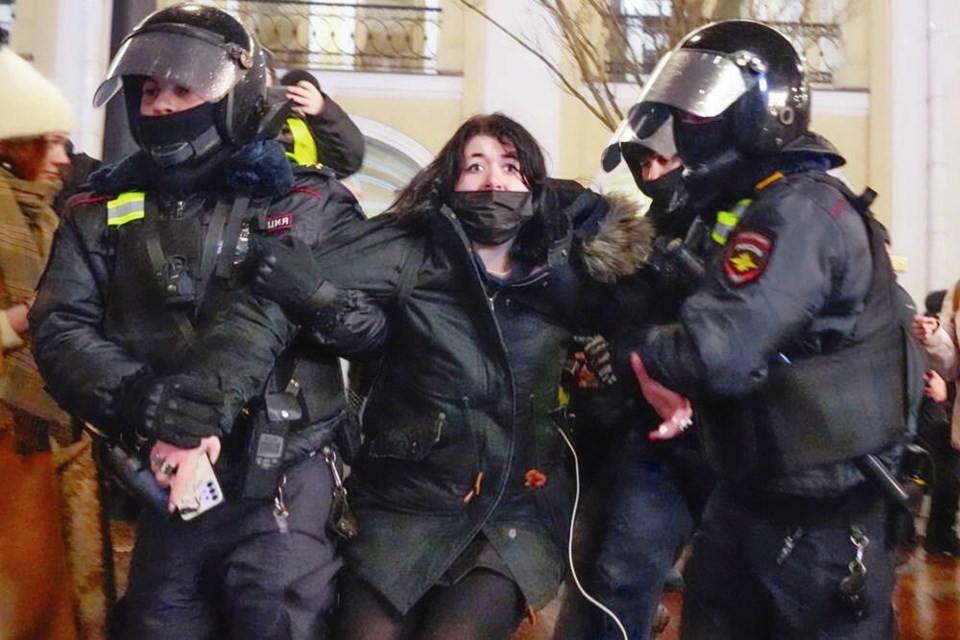War brings with it acts of horror and atrocity, but also gestures of kindness and courage — the war in Ukraine is no different.
On the nightly newscasts, we see decimated cities and panicked refugees; we also see generous volunteers and determined Ukrainians singing amidst the rubble. But the moment that stood out for me was not from Ukraine but Russian state media.
While a presenter was reading the day’s state-sanctioned news, an employee (although not for much longer) held up a sign that read in Russian and English: “NO WAR. Stop the war. Don’t believe propaganda. They are lying to you here.”
It was a remarkable act of courage and defiance.
Marina Ovsyannikova held her strategically placed sign knowing she could pay a high price for it. The Russian legislatures had already decreed that reporting on the war (which no one in Russia is even allowed to call a war) would be met with a 15-year prison term.
Prior to staging her on-air protest, Ovsyannikova had pre-recorded a message in which she said she was ashamed of her role in promoting state propaganda until that point.
The relationship between the media and state authorities, be they government or industrial, is always fraught but never more so than in a time of war.
“The first casualty of war is the truth,” may be a cliche, but it’s also telling. And we don’t have to look far from home for examples. Former Richmond MP Kenny Chiu notes one in particular.
Chiu has become a vocal critic of the Chinese government’s attempts to influence Chinese people around the world and particularly in Canada. In regards to the current war in Ukraine, he pointed to a recent broadcast he heard on a Richmond-based, Chinese language radio show. (See our story on page 10)
According to Chiu, the commentator on AM1320, speaking in Cantonese, said Western governments are “robbing Russia and confiscating all its assets and wealth from the Russian oligarchs.”
As Chiu rightly points out, Western governments are not “stealing money” but rather freezing assets in an attempt to pressure Russian influencers, to pressure the Russian president Vladimir Putin to stop the war.
We could dismiss the AM1320 commentator’s statements as just one guy’s opinion, but words have power, particularly when they elicit fear.
In recent days, there have been trending comments on Vanpeople (a kind of Chinese version of Reddit) with people worrying aloud that the Canadian government may come after their assets if Canada doesn’t like something the Chinese government does — like support Russia in this conflict.
However, many others on Vanpeople note there’s a big difference between oligarchs, a tiny minority of people with astronomical wealth and influence, and the vast majority of ethnic Chinese residents of Canada — even if they are well-off.
So, how to negotiate this cacophony of news and information — some brilliant, some fake, some downright insidious? How do we distinguish legitimate opinions from those that are simply intolerable?
There are no easy answers, but it’s on all of us to think about critically. That means recognizing when even “legitimate” media become cheerleaders for one side or another. And remembering Russia is not the first country to refuse to call a war a war — think Vietnam.
While we’re lucky to have the media we do in Canada, it’s far from perfect. There are government apologists and courageous journalists everywhere.
Here’s to Marina Ovsyannikova.



